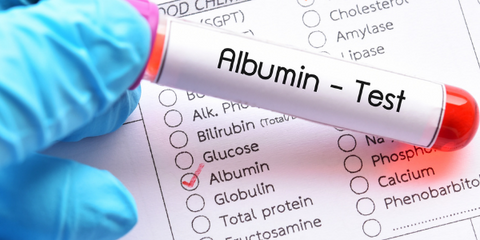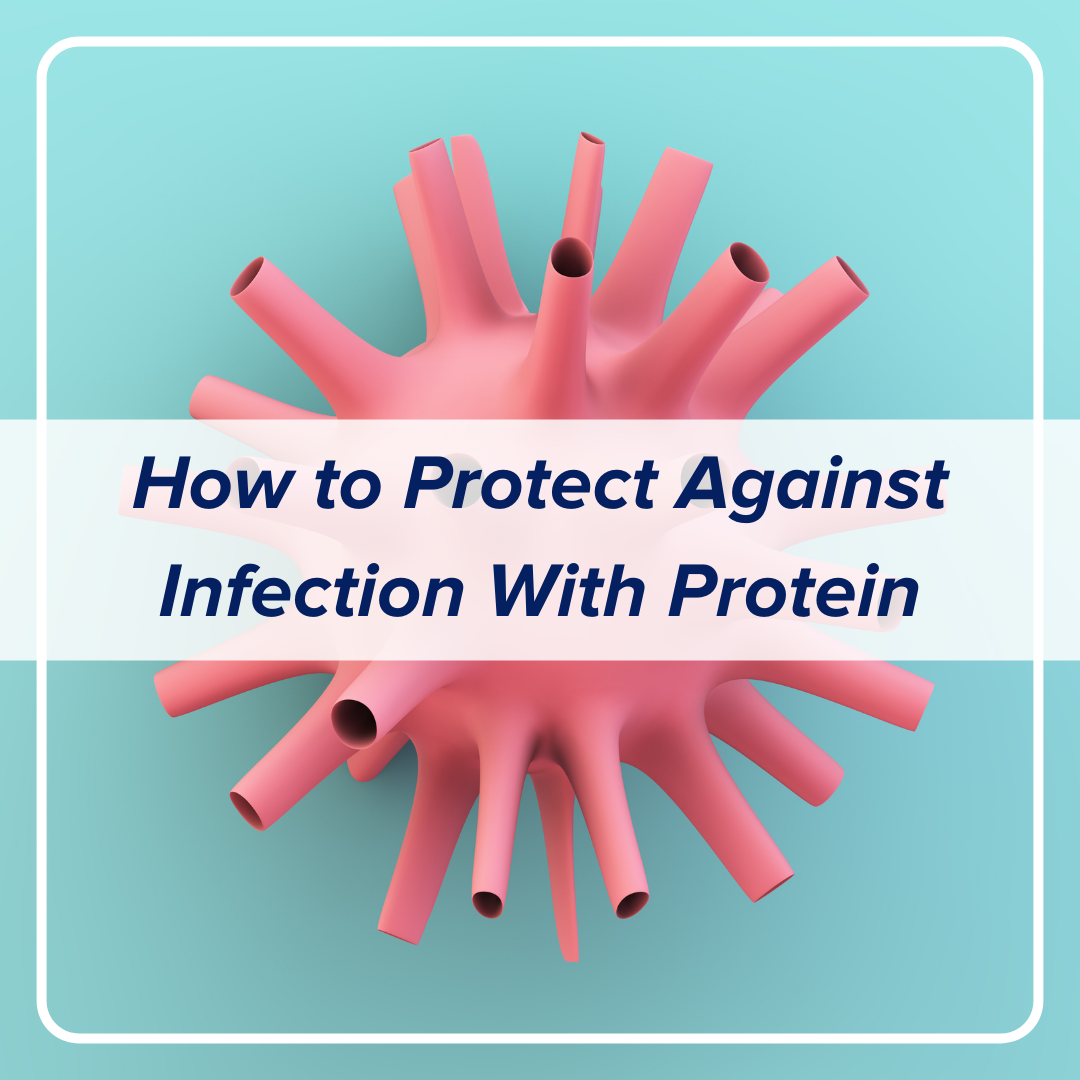In the last year, research has shown a familiar macronutrient has gained recognition in helping improve patient outcomes: protein. More specifically, the protein in our blood known as albumin.
What is Albumin?
Albumin is the main protein in our blood and is responsible for transporting hormones, enzymes, vitamins, and other important substances throughout the body.
Albumin plays a key role in healing wounds, fighting infections, and providing a great source of energy to the body. Recent studies on COVID-19 patients have found that there is an inverse relationship between the level of albumin in the body and the risk of hospitalization and death in COVID-19 patients.
Why is Albumin Important?
Studies have shown that a diet rich in protein positively impacts immune function, our ability to prevent infections, and helps us recover from illnesses.
Our immune system is made up of antibodies and immune system cells that come from protein, so without enough protein, you may experience weakness, lower immunity, fatigue, and difficulty recovering from infection. Protein plays a key role in building the body’s tissues and fighting viral infections such as COVID-19.
How to Monitor Albumin Levels
Keeping albumin within the range of 3.5-5.5 g/dl (optimal level: 4.0g/dl and up) decreases your risk of hospitalization.
Dialysis patients have increased protein needs to make up for protein loss during dialysis. Ensuring adequate protein intake when on dialysis is a critical part of patient success and higher levels of albumin is correlated with better patient outcomes for end-stage renal patients.
Knowing the risks associated with low albumin reinforces the protective power of protein and our ability to prevent infection and malnutrition through adequate protein intake.
Inflammation can also have an impact on albumin levels, and people with certain chronic diseases are more at risk, including: lupus, arthritis, CKD, cancer, diabetes, cardiovascular disease, IBD, autoimmune disease, periodontal disease. Other causes of low albumin due to inflammation include bladder infections, wounds, smoking, or antibiotic therapy for acute infection.

How to Increase Albumin Levels
-
Eat the right food: Vitamin D and protein-rich foods help increase albumin levels through diet. Try eating a diet rich in fish, chicken, turkey, lean meats, beans and whey protein.
Dietitian tip: Animal products are the main sources of complete protein, meaning they contain all 9 essential amino acids. Eggs, chicken, pork, and beef are some examples of high biological value protein foods, meaning they are made of at least 50% easily-absorbed protein.
-
Monitor your health: Keep track of your albumin levels. If you are a renal patient, get your blood work checked on a monthly basis. Your dietitian should monitor your albumin levels to better understand your nutritional status and risks for malnutrition and infection.
-
Meet with a dietitian: Speak with a dietitian to learn the right amount of protein for you; generally 0.8-1.2 grams per kilogram of body weight.
-
Take a protein supplement: Start taking a protein supplement like the Vidafuel Protein Drink, which has been clinically proven to improve albumin levels when taken regularly. Note that dialysis patients have increased protein needs to make up for the protein losses during dialysis.
Dietitian tip: Take a look at the source of protein (i.e. whey, collagen, soy, etc.) as well as other nutritional information in the supplement. Be careful — some protein supplements contain more sugar than protein per serving! A little research can go a long way.
Keep in mind that there are numerous factors that influence albumin status beyond what you eat. In order to assess your overall health, it is important to remember underlying conditions that could be contributing to low levels of albumin as well.
Maintaining healthy albumin levels is an important factor in protecting your body against viruses and infections. While diet plays a key role, we know it cannot do it all. Speak with your doctor or dietitian about how lifestyle choices or underlying health conditions can also impact your albumin levels.


